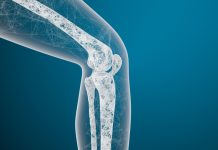Washington University School of Medicine researchers have identified four important symptoms of colorectal cancer that indicate elevated risk
Colorectal cancer has nearly doubled among young adults in recent years, which is why identifying the symptoms of colorectal cancer is more important than ever.
Studying more than 5,000 patients, researchers found the following symptoms of colorectal cancer:
- Abdominal pain
- Rectal bleeding
- Diarrhea
- Anemia
In fact, if three or more of the above symptoms are present, a person’s risk of cancer can increase by up to 6.5 times.
‘Colorectal cancer is not simply a disease affecting older people’
Yin Cao, ScD, is a senior investigator and associate professor of surgery in the Public Health Sciences Division. She is also a research member of the Siteman Cancer Center at Barnes-Jewish Hospital and Washington University School of Medicine.
She explains. “Colorectal cancer is not simply a disease affecting older people; we want younger adults to be aware of and act on these potentially very telling signs and symptoms — particularly because people under 50 are considered to be at low risk, and they don’t receive routine colorectal cancer screening.
“It’s also crucial to spread awareness among primary care doctors, gastroenterologists and emergency medicine doctors.
“To date, many early-onset colorectal cancers are detected in emergency rooms, and there often are significant diagnostic delays with this cancer.”

Rectal bleeding and iron deficiency anemia identified by Cao
When analyzing cases of early-onset colorectal cancer, Cao identified rectal bleeding and iron deficiency anemia as symptoms of the disease.
The study was conducted by Cao, along with first author Cassandra D.L. Fritz, MD and co-first author Ebunoluwa Otegbeye, MD.
The team studied longitudinal, de-identified health insurance claims data from approximately 113 million insured adults between the ages of 18 to 64.
Cao matched controls using the IBM MarketScan Commercial Database.
Symptoms of colorectal cancer identified up to two years before diagnosis
“It usually takes about three months to get a diagnosis from the time a person first goes to the doctor with one or more of the red-flag signs and symptoms we’ve identified,” Fritz states.
“But in this analysis, we found that some young adults had symptoms for up to two years prior to their diagnoses.
“That may be part of the reason many of these younger patients had more advanced disease at the time of diagnosis than what we normally see in older people who get screened regularly.”
Adults born in 1990 are at higher risk than those born in 1950
Interestingly, individuals born in 1990 are twice as likely to be diagnosed with colon cancer and four times as likely to be diagnosed with rectal cancer as those born in 1950.
This trend has led professional societies to prioritize research for identifying risk factors and improving early detection.
In turn, the U.S. Preventive Services Task Force has lowered the recommended age for colorectal cancer screening from 50 to 45.
Dr. Cao discusses risk factors and molecular variations in early-onset colorectal cancer.
The following risk factors contribute to the rising disease incidence:
- Obesity
- Prolonged sitting
- Metabolic syndrome
- Diabetes
- Sugar-sweetened beverages
Spotting symptoms early is crucial for survival rate
Despite the decreasing death rate among older adults, this cannot be said for young adults.
In fact, more young people are being diagnosed at advanced stages, which makes identifying symptoms of colorectal cancer early crucial.
“Since the majority of early-onset colorectal cancer cases have been and will continue to be diagnosed after symptom presentation, it is crucial to recognize these red-flag signs and symptoms promptly and conduct a diagnostic work-up as soon as possible,” Cao concludes.
“By doing so, we can diagnose the disease earlier, which in turn can reduce the need for more aggressive treatment and improve patients’ quality of life and survival rates.”








